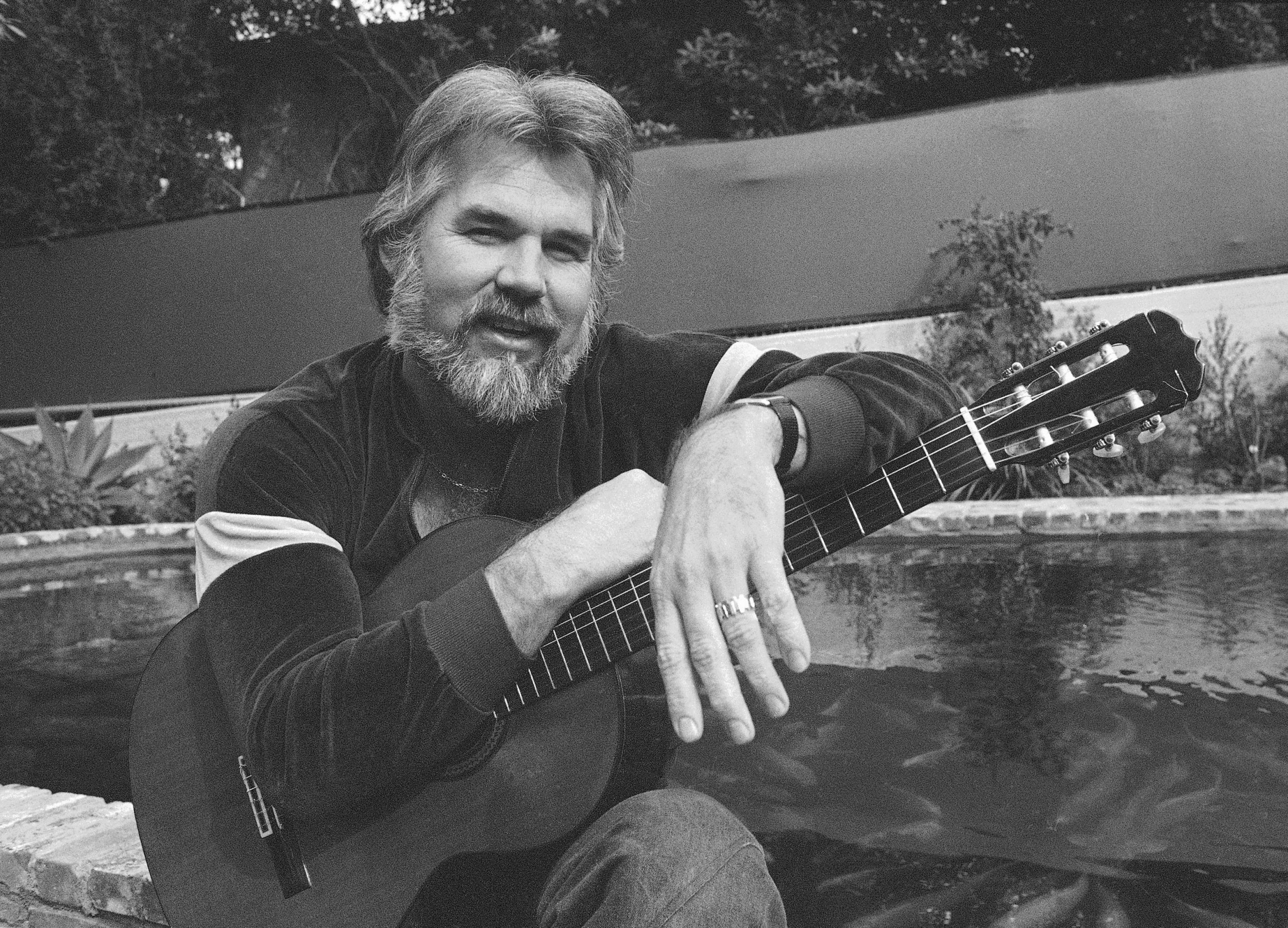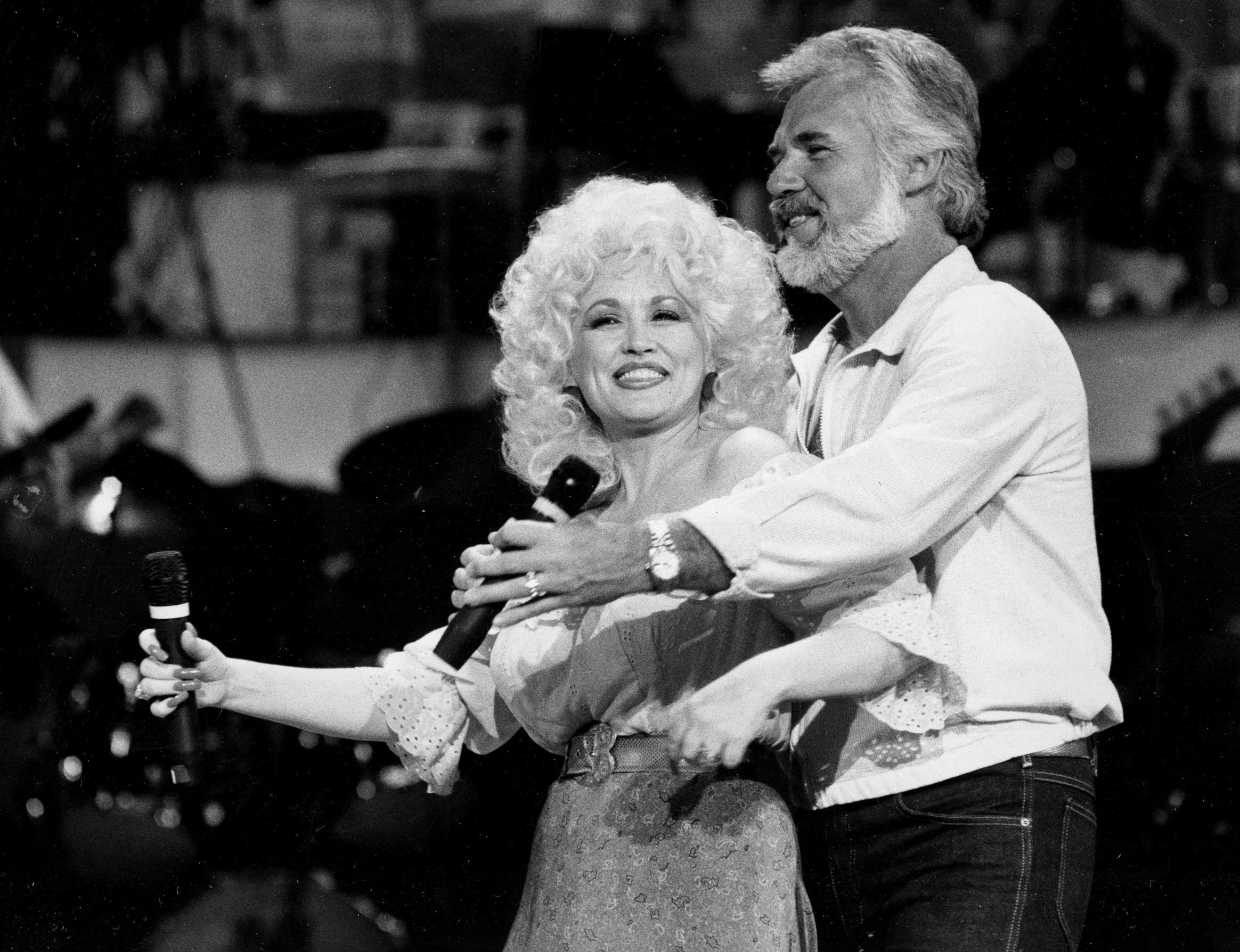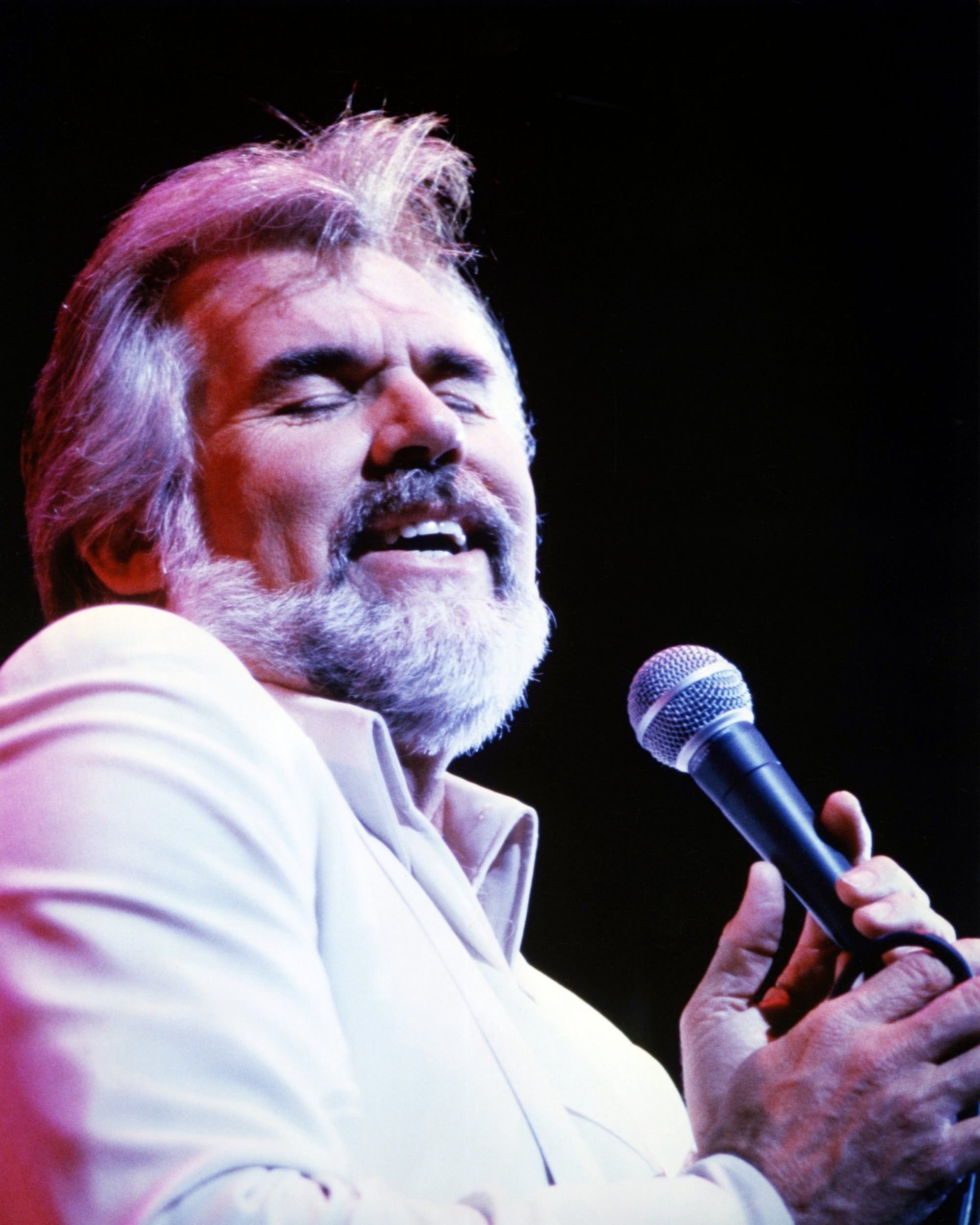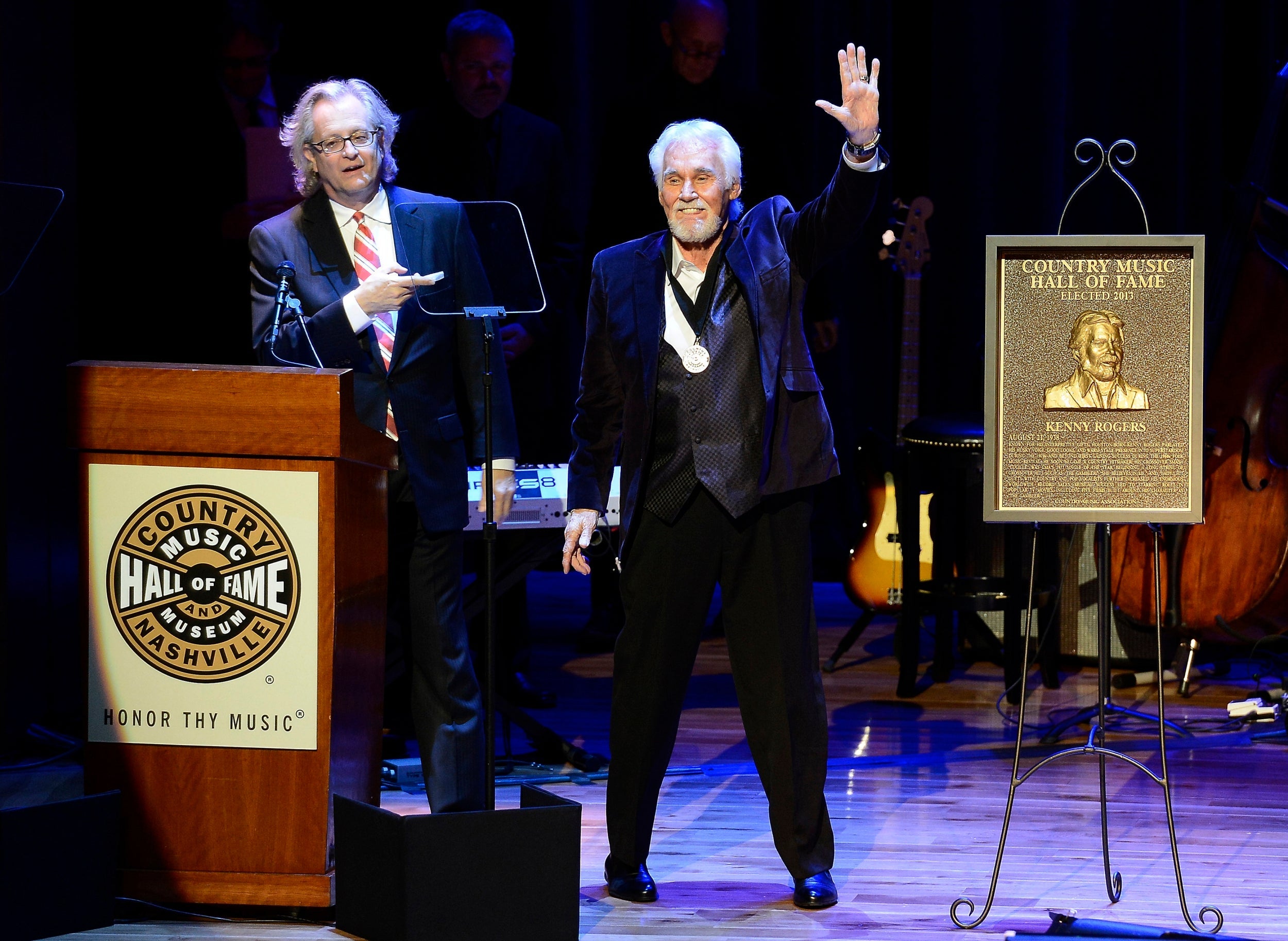Kenny Rogers: Country singer who crossed over into mainstream pop success
His laid-back persona and astute song choices brought him a slew of chart hits

Kenny Rogers was the grizzled, raspy-voiced country-pop crooner who specialised in narrative-driven ballads such as “Lucille” and “The Gambler”, the latter of which sent its “life as a card game” refrain – “You’ve got to know when to hold ‘em, know when to fold ‘em.” – echoing through popular culture.
A veteran of doo-wop, jazz and folk groups, Rogers, who has died aged 81, was pushing 30 when he had his first brush with commercial success as part of the pop group the First Edition. The group’s 1967 hit “Just Dropped In (To See What Condition My Condition Was In)” was about a hallucinogenic trip and was later featured in a psychedelic dream sequence in the 1998 Coen brothers film The Big Lebowski.
The act broke up in the mid-1970s, and Rogers found himself thrice divorced, in debt and hawking the “Quick-Pickin’ ‘N Fun-Strummin’ Home Guitar Course” in TV commercials. Seeking a change, he found it in Nashville.
“I went to Fan Fair in Nashville at Municipal Auditorium one time,” Rogers said, “and there were about 10,000 people in the audience, and they introduced this guy who had had a record back in 1954, and the crowd went crazy. I felt that, with that type of longevity, this is where I needed to be.”
Nashville producer Larry Butler engineered Rogers’ reinvention as a country performer. With his impeccably groomed grey beard and designer western wear, the singer cultivated a romantic but laid-back persona that played off Butler’s careful, hook-laden song choices.
During the 1970s, Rogers fine-tuned a middle ground between country and easy-listening pop that reaped commercial dividends. Every recording he made between 1976 and 1984 sold more than 500,000 copies, and many sold more than a million.
The love ballads included “You Decorated My Life” and “She Believes in Me”, both from 1979, and a cover the next year of Lionel Richie’s “Lady”. In addition to Don Schlitz’s “The Gambler” (1978), he had hits with “story songs” such as “Lucille” (1977), about a woman leaving her impoverished farmer husband (“You picked a fine time to leave me, Lucille”), and “Coward of the County” (1979), the story of a passive man’s bloody revenge against the rapists who attacked his sweetheart. Cumulatively, they established him as a force in country pop.

Some of his notable duets included “Islands in the Stream” with Dolly Parton and “We’ve Got Tonight” with Sheena Easton, both in 1983; “Don’t Fall in Love With a Dreamer” (1980) with Kim Carnes; and “Every Time Two Fools Collide” (1978) with Dottie West. “Make No Mistake, She’s Mine”, Rogers’s duet with Ronnie Milsap, won a Grammy for best country duo in 1987.
He won two other competitive Grammys, for “The Gambler” and “Lucille” and was nominated 19 times. In 2013, he was inducted into the Country Music Hall of Fame.
Rogers’ chart presence faded from the mid-1980s, but he remained a constant and instantly recognisable presence on television, hosting music specials and bringing the title character of "The Gambler" to life in a series of made-for-TV westerns. He also starred as a racing-car driver in the 1982 family film Six Pack.
Kenneth Ray Rogers was born in Houston, Texas, in 1938. He was the fourth of eight children and grew up in a public housing development. He said his father, a carpenter and country fiddler, was an alcoholic who often drank his wages. His mother was a nurse’s assistant.

Inspired by a Ray Charles concert he attended at 12, he decided to pursue a music career. He formed a Houston doo-wop group and called it the Scholars.
“A misnomer – there wasn’t a C student in the bunch,” he later quipped. They had a regional hit with “That Crazy Feeling” (1958) released under his own name.
After a stint as a bass player in a local jazz trio, he joined the New Christy Minstrels in 1966. But the next year, feeling stifled by the group’s formulaic hootenanny style, Rogers and three former Minstrels – singer Mike Settle, guitarist Terry Williams and vocalist Thelma Camacho – formed the First Edition. Mickey Jones, a drummer who had toured with Bob Dylan, rounded out the unit.
With Rogers increasingly featured as the frontman, the group was later billed as Kenny Rogers and the First Edition. The group’s 1969 hit, “Ruby, Don’t Take Your Love to Town”, written by country star Mel Tillis, was about a paralysed and cuckolded veteran and was perceived as a thinly veiled swipe at the Vietnam War. “Reuben James”, also from 1969, told the story of a black man raising a white child. The band had a syndicated television show, Rollin’ on the River (later shortened to Rollin’), which ran from 1971 to 1973.
Rogers said his ambition and inclination to put work first led to a turbulent personal life. Four of his marriages – to Janice Gordon, Jean Rogers, Margo Anderson and actor Marianne Gordon – ended in divorce. His 1993 divorce settlement with Gordon, after 16 years of marriage, cost him $60m. “She deserves every penny,” he later said, noting that she stood behind him in the years he was broke, and before his breakthrough as a major solo performer.

Rogers remained an enthusiastic performer, still hoping to make new fans, well into the twilight of his career. “I’ve always said I don’t care whether one person walks away saying, ‘He’s the best singer I’ve ever heard,’” he once said. “But I want everyone to walk away saying, ‘I enjoyed that.’”
He is survived by his wife Wanda Miller and five children.
Kenny Rogers, singer, born 21 August 1938, died 20 March 2020
© Washington Post
Join our commenting forum
Join thought-provoking conversations, follow other Independent readers and see their replies
Comments
Bookmark popover
Removed from bookmarks